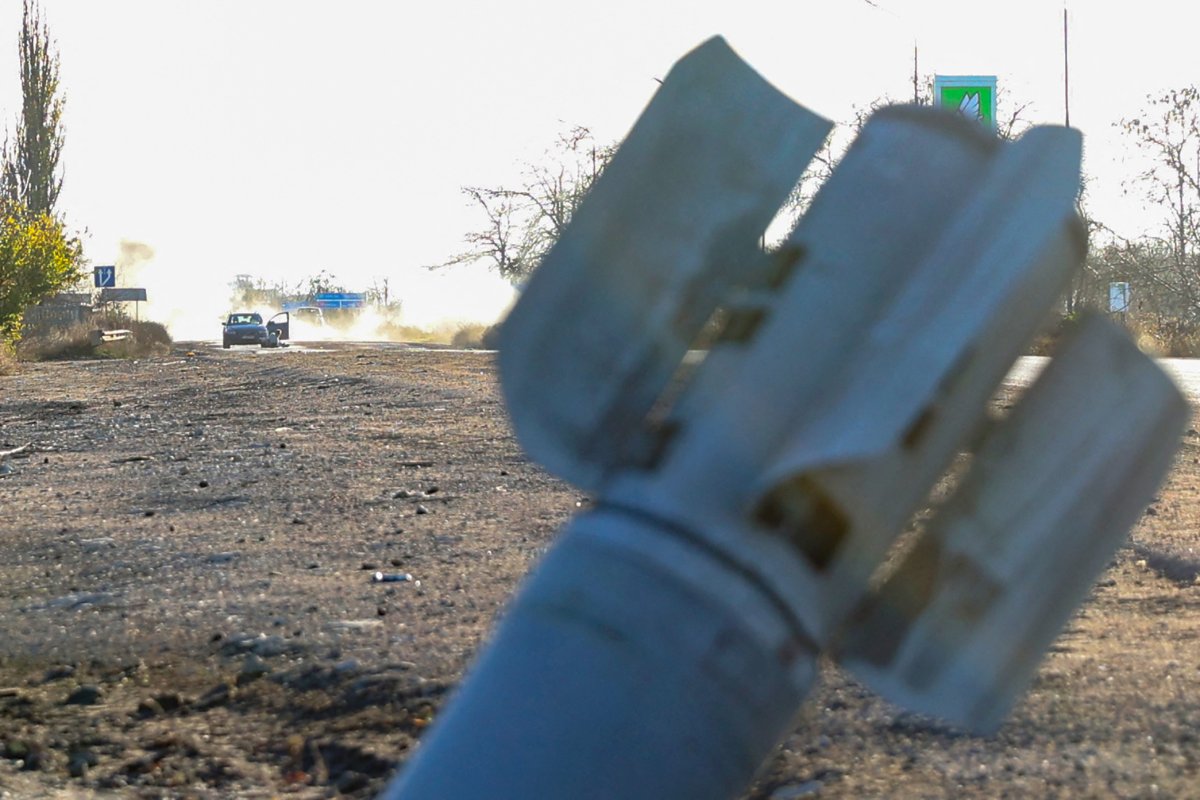Russia's dwindling missile stocks are hurting its ability to continue its strikes in Ukraine, according to British defense officials.
In its daily update, the U.K. Ministry of Defense said on Thursday that over the last month, Moscow's forces have mostly used cruise missiles to target Ukraine's electricity distribution grid.
This was likely to be part of the military doctrine it has adopted in recent years known as Strategic Operation for the Destruction of Critically Important Targets (SODCIT).

This tactic entailed using long-range missiles to prioritize strikes on critical national infrastructure instead of hitting military forces in a move "to demoralize the population" and force the capitulation of the state's leaders.
In his nightly address, Ukraine's President Volodymyr Zelensky said on Wednesday that nearly six million people across the country have no electricity, following Russian attacks on power facilities.
"The situation remains very difficult in the capital, as well as in the Kyiv, Vinnytsia, Lviv, Odesa, Khmelnytskyi and Cherkasy regions," Zelensky added.
Latest Defence Intelligence update on the situation in Ukraine - 01 December 2022
— Ministry of Defence 🇬🇧 (@DefenceHQ) December 1, 2022
Find out more about the UK government's response: https://t.co/xZbaD06yRU
🇺🇦 #StandWithUkraine 🇺🇦 pic.twitter.com/xE1OlJT6gW
While Russia's strikes on infrastructure had caused power shortages and "indiscriminate, widespread humanitarian suffering across Ukraine," the British MOD suggested that this tactic would have had more impact earlier in the war.
"Its effectiveness as a strategy has likely been blunted because Russia has already expended a large proportion of its suitable missiles against tactical targets," it said.
The defense officials added that Ukraine having successfully mobilized for nine months meant that the impact of the SODCIT "is likely less than if it was deployed in the initial period of a war."
Newsweek has contacted Russia's Defense Ministry for comment on the assessment which emphasizes Ukraine's gains and Russia's losses.
Last week, British defense officials said that Russian missile stocks were so depleted that Moscow's forces were resorting to removing nuclear warheads from old cruise missiles to fire at targets in Ukraine.
Western sanctions imposed on Russia due to its invasion are affecting its ability to source components for missiles. Kyiv has claimed that Russia had expended two-thirds of its most modern missiles and had dwindling supplies of Iskander short-range missiles and Kalibr land-attack missiles.
However, Russia's true missile stocks are difficult to discern and its forces are still capable of launching regular operationally significant attacks on Ukraine.
Steven Horrell, a non-resident senior fellow with the Transatlantic Defense and Security Program at the Center for European Policy Analysis, told Newsweek in November that Russia's ability to produce missiles has been hurt due to a lack of component parts.
"That means they're not advancing and getting better if they're just looking at last year's tech to replenish stocks of Iskanders, Kalibrs and KH-101s," he said.
He said that a lack of stocks was partly the reason why "a lot of these missile strikes on the civilian infrastructure and on the civilian population centers have not been precision strikes.
"They've been older things. They are not the Kalibr land attack missiles but in fact coastal defense cruise missiles..to hit an area target, rather than precision strike munitions."
Uncommon Knowledge
Newsweek is committed to challenging conventional wisdom and finding connections in the search for common ground.
Newsweek is committed to challenging conventional wisdom and finding connections in the search for common ground.
About the writer
Brendan Cole is a Newsweek Senior News Reporter based in London, UK. His focus is Russia and Ukraine, in particular ... Read more
To read how Newsweek uses AI as a newsroom tool, Click here.








